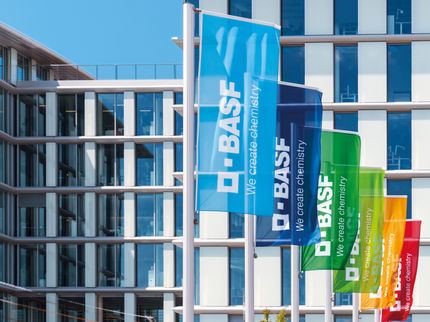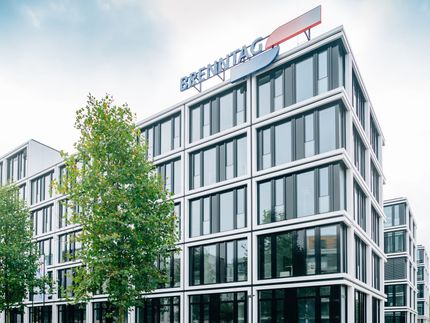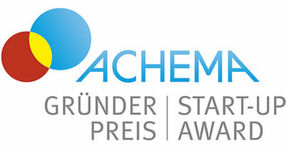Merck Delivers Profitable Organic Growth Amid Strong Currency Headwinds
Strong sales in Process Solutions and for blockbusters Mavenclad and Erbitux, sustained demand for Semiconductor Materials
Advertisement
Merck, a leading science and technology company, continues its organic growth. Despite ongoing geopolitical uncertainties, Group net sales in the second quarter of 2025 increased by 2.0% organically compared with the year-earlier quarter, while EBITDA pre rose by 4.6% organically. Process Solutions within the Life Science business sector recorded another very strong quarter, while sales of Healthcare’s blockbuster drugs Mavenclad and Erbitux saw very strong growth. In addition, the Semiconductor Materials business within Electronics continued to grow, fueled by strong demand for AI technologies.
Strong negative foreign exchange effects, especially the weakening of the U.S. dollar against the euro, weighed on net sales and EBITDA pre. Group net sales declined by 1.8% to € 5.3 billion due to negative foreign exchange effects of 4.2%. Negative foreign exchange also impacted EBITDA pre by 7.2%, leading to an overall decrease by 3.1% to € 1.5 billion. As a result, the EBITDA pre margin of 27.8% was 0.4 percentage points lower than the year-earlier period. Earnings per share pre amounted to € 2.02 compared with € 2.20 in the year-earlier quarter.
“We have delivered solid underlying sales and earnings growth,” said Belén Garijo, Chair of the Executive Board and CEO of Merck. “Yes, currency effects are taking their toll. But by standing on three pillars – Life Science, Healthcare and Electronics – we are, as a Group, better able to withstand the geopolitical, economic and currency swings that are buffeting companies around the world. Meanwhile, our recently completed acquisition of SpringWorks Therapeutics underlines our conviction that cutting-edge technology, including through strategically savvy acquisitions and partnerships, is key to securing future growth.”
Life Science accelerates underlying growth
Process Solutions recorded yet another strong quarter, significantly driving growth for Life Science. Overall, net sales of the business sector rose organically by 3.7%. This growth was mostly offset by foreign exchange effects, leading to net sales growth of 0.4% to € 2.3 billion in the second quarter of 2025. EBITDA pre grew organically by 3.7%, primarily thanks to higher net sales. However, negative foreign exchange and portfolio effects resulted in a decline of 1.3% to € 646 million.
Process Solutions, which offers solutions for the entire pharmaceutical production value chain, saw an organic net sales increase of 11.5%. This marked the business unit’s second consecutive double-digit quarterly increase and its best sales performance in two years. During the Covid-19 pandemic, customers had substantially increased their inventories, resulting in a post-pandemic drop in demand. However, order intake has risen very strongly again, with the book-to-bill ratio comfortably above 1 in the second quarter of 2025.
The Science & Lab Solutions unit, which offers products and services for pharmaceutical, biotechnology and academic research, faced challenging market conditions in the United States in particular, with ongoing uncertainty surrounding funding for scientific research. While overall spending on pharmaceutical research remained restrained, the company saw some encouraging signs from pharma and biotech customers. Net sales growth was organically flat (+/–0.0%), an improvement on an organic decline of 2.5% in the first quarter of 2025.
Challenging market conditions, in particular early-stage biotech funding, continued to weigh on the Life Science Services business unit, which offers customers services as a contract development and manufacturing organization (CDMO) of medications as well as testing services. Net sales declined by 8.2% organically.
Blockbusters fuel Healthcare growth
Growth in Healthcare was mainly driven by two blockbuster drugs Erbitux and Mavenclad and the Cardiovascular, Metabolism & Endocrinology franchise. Net sales of the business sector as a whole grew by 3.6% organically compared with the previous year; however, negative foreign exchange effects led to a decline of 1.6% to € 2.1 billion. EBITDA pre grew organically by 20.0%, primarily as a result of temporarily reduced spending on research and development, a favorable product mix, strong commercial execution, and continued cost discipline. Despite negative foreign exchange effects in the double-digit percentage range, EBITDA pre rose 8.8% to € 783 million.
Net sales of Erbitux increased organically by 10.9% thanks to increased demand. The drug is a treatment for metastatic colorectal cancer as well as cancer of the head and neck. Bavencio, used to treat a type of bladder cancer, saw weaker demand as other treatment options are now available for this indication. Net sales declined by 12.1% organically. Overall, net sales of the Oncology franchise grew by 3.9% organically.
Mavenclad, which is used to treat multiple sclerosis, achieved strong organic growth of 20.7% because of increased demand in the United States and Europe. With net sales of € 307 million, Mavenclad delivered record quarterly sales. The multiple sclerosis drug Rebif recorded an organic net sales decline of 26.1%, in line with the global interferon market. Net sales of the Neurology & Immunology franchise grew by 2.6% organically.
The Cardiovascular, Metabolism & Endocrinology franchise achieved organic net sales growth of 4.7%. This franchise includes the diabetes medicine Glucophage, the beta-blocker Concor, the thyroid medicine Euthyrox, and Saizen, which is primarily used to treat various growth hormone disorders. All therapeutic areas contributed to the positive organic sales development.
In the Fertility franchise, Pergoveris achieved 20.5% organic net sales growth supported by its differentiated profile. The drug stimulates the production and release of egg cells. Gonal-f, a hormone treatment for infertility, saw an organic net sales decline of 12.5% amid high year-earlier comparables. The franchise's overall net sales declined by 3.4% organically.
Going forward, SpringWorks Therapeutics will also contribute to the growth of Merck. Merck completed the acquisition of this U.S.-based biopharmaceutical company for US$ 3.4 billion (approximately € 3 billion) on July 1, 2025. With SpringWorks’ portfolio, Merck is expanding its rare tumor business. On July 18, 2025, the European Commission granted conditional approval for Ezmekly® (mirdametinib). Developed by SpringWorks, it is used for the treatment of symptomatic, inoperable plexiform neurofibromas.
Electronics sees continued demand for semiconductor materials
The decline in Delivery Systems & Services has been sharper than anticipated, with already committed customer capital projects being delayed further. AI demand is driving the continued growth of materials needed for advanced nodes – the latest semiconductor manufacturing processes that allow for smaller feature sizes. The Semiconductor Materials business continued to deliver low single-digit organic growth for the second quarter against a strong comparable period.
Net sales of Electronics declined by 7.4% to € 886 million (organically: –5.6%) amid negative foreign exchange effects of –3.5%. Excluding foreign exchange effects, the second quarter saw the highest quarterly revenue for Semiconductor Materials since 2022, reflecting the sixth quarter of sequential growth. EBITDA pre declined by 47.6% to € 134 million (organically: –41.3%) due mainly to one-time effects including a purchase price allocation (PPA) adjustment and a provision for potential customer claims as a result of a non-quality-related problem caused by a supplier.
Sales in Optronics were around stable with the acquisition contribution from Unity‑SC more than offsetting lower sales for liquid crystals and OLED materials and foreign exchange headwinds. Demand for metrology and inspection, highly precise measurement and testing equipment for semiconductor manufacturing, increased year-on-year with strong demand from the field of Artificial Intelligence. Organically, overall net sales declined by 5.3%.
Net sales in Surface Solutions declined organically by 6.4% due to low demand, especially in cosmetics. Merck closed the divestment of the business unit on July 31, 2025. By divesting Surface Solutions, the company is positioning its Electronics business sector even more strongly as a provider of semiconductor solutions.
Merck refines 2025 guidance
Merck refined its existing guidance for the full year. The company narrowed the expected organic sales growth range for the Group to 2% to 5% (previously 2% to 6%). For EBITDA pre, Merck raised its guidance and now expects organic growth of 4% to 8% (previously 2% to 7%). This change was driven by positive guidance adjustments for Life Science and Healthcare as well as high cost discipline in all business sectors.
For Life Science, Merck now expects organic net sales growth of 3% to 6% (previously 2% to 6%) and organic EBITDA pre growth of 3% to 7% (previously 1% to 7%). For Healthcare, the range for expected organic net sales growth was narrowed to 3% to 5% (previously 2% to 6%). Merck now expects EBITDA pre for Healthcare to grow organically by 9% to 13% (previously 4% to 10%). For Electronics, the company’s smallest business sector, the new guidance reflects the one-time effects arising in the second quarter. Organic net sales are expected to decline by –5% to –1% (previously +1% to +6%), and organic EBITDA pre by –15% to –7% (previously –3% to +8%).

































































